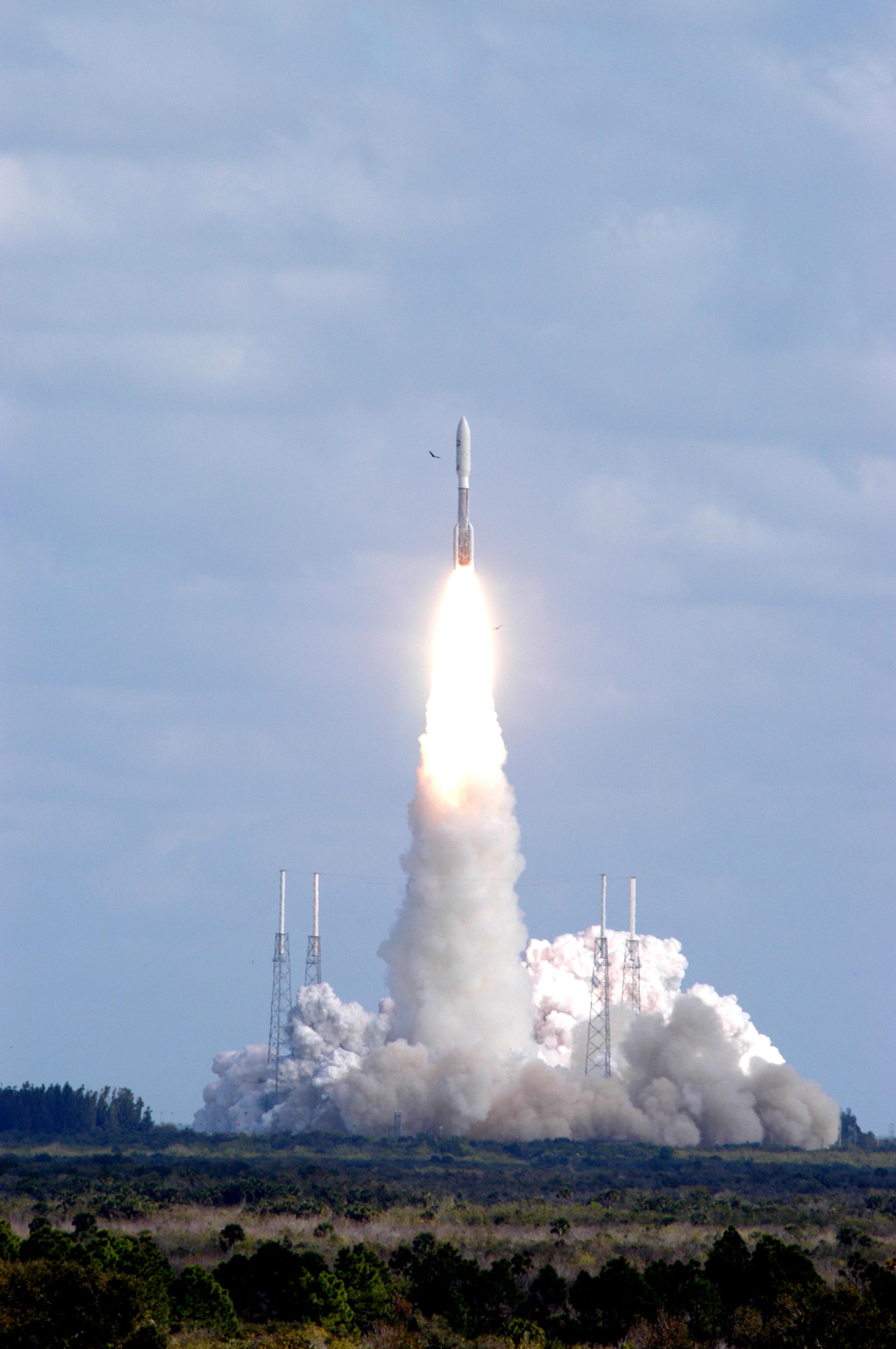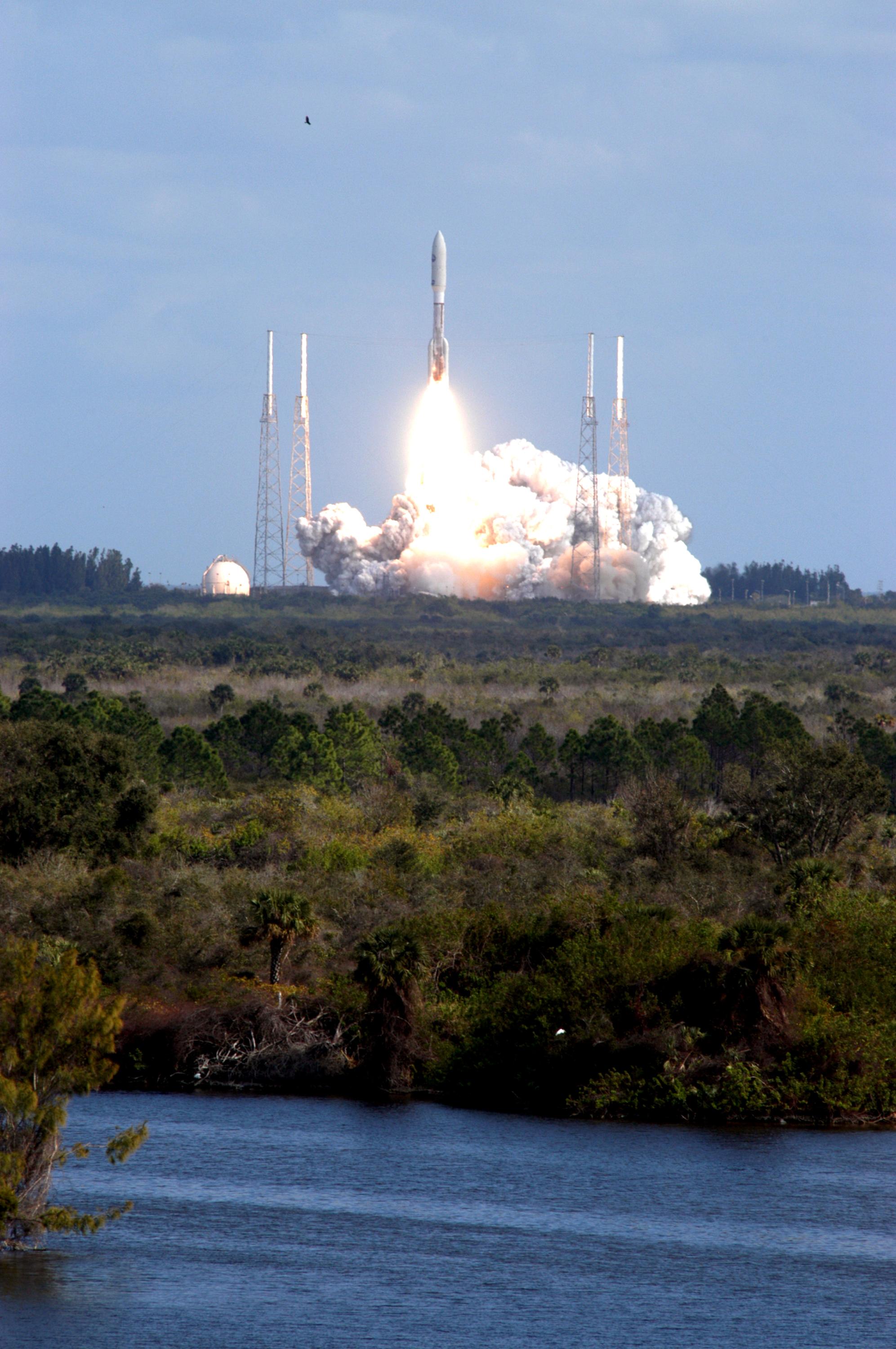Press Release
NASA's Pluto Mission Launched Toward New Horizons
The first mission to distant planet Pluto is under way after the successful launch today of NASA's New Horizons spacecraft from Cape Canaveral Air Force Station, Fla.
New Horizons roared into the afternoon sky aboard a powerful Atlas V rocket at 2 p.m. EST. It separated from its solid-fuel kick motor 44 minutes, 53 seconds after launch, and mission controllers at The Johns Hopkins University Applied Physics Laboratory (APL) in Laurel, Md., where the spacecraft was designed and built, received the first radio signals from New Horizons a little more than five minutes later. The radio communications, sent through NASA's Deep Space Network antennas in Canberra, Australia, confirmed to controllers that the spacecraft was healthy and ready to begin initial operations.
"Today, NASA began an unprecedented journey of exploration to the ninth planet in the solar system," says Dr. Colleen Hartman, deputy associate administrator for NASA's Science Mission Directorate, Washington, D.C. "Right now, what we know about Pluto could be written on the back of a postage stamp. After this mission, we'll be able to fill textbooks with new information."
The 1,054-pound, piano-sized spacecraft is the fastest ever launched, speeding away from Earth at approximately 36,000 miles per hour, on a trajectory that will take it more than 3 billion miles toward its primary science target. New Horizons will zip past Jupiter for a gravity assist and science studies in February 2007, and conduct the first close-up, in-depth study of Pluto and its moons in summer 2015. As part of a potential extended mission, the spacecraft would then examine one or more additional objects in the Kuiper Belt, the region of ancient, icy, rocky bodies (including Pluto) far beyond Neptune's orbit.
"The United States of America has just made history by launching the first spacecraft to explore Pluto and the Kuiper Belt beyond," says Dr. Alan Stern, New Horizons principal investigator, from Southwest Research Institute in Boulder, Colo. No other nation has this capability. This is the kind of exploration that forefathers like Lewis and Clark, 200 years ago this year, made a trademark of our nation."

